
The list of reasons we love riding trails has grown since sometime in the 1970’s, and each of us has a unique story of what the sport means and where it has taken us.”Continuous learning” is a phrase that sits on the top of my “why I ride” list. I love that no matter how long I have been riding, or how I excel at a particular challenge, I will never master it all.
You may have heard fellow mountain bikers throw around statements like “crashing is part of racing,” or ” if you don’t crash you’re not trying hard enough.” I have heard and said these things, both in relation to racing and riding with friends. I try not to tell other folks what their mountain biking experience should look like anymore, but I still consider crashing to be an important part of my own process. I see crashing as a form of failure, and without failure, I can’t learn new things.

I go over the bars, or adjacent hillside, fairly often. By rough estimation, I bail once per month, and occasionally more. One of my ride partners recently said that I am the world’s best product tester because “if something can break, you will crash and destroy it.” Occasionally the thing that breaks is my own bone, but most of the time it’s a plastic component that was designed to fail on impact, like a helmet visor. Why don’t they include two or three extra visors when you buy a new lid?
In addition to professional skills courses, and following more seasoned friends, mountain bikers who want to learn new skills sometimes have to huck ourselves down or off of unfamiliar chunks of trail so we can learn how to, or not-to, ride them. For example, you have likely hit a section of track that is far gnarlier than you are comfortable with, but you know it will be less dangerous to ride than to walk down alongside your bike.
If you race, you might show up to an event and find an intimidating jump in the track that you would never want to ride, but if you choose to compete you will have to send it. For other folks, challenges and their adjacent fear come when trying to drift sweeping corners on fire roads, or other high-speed slides. Each of these situations requires some understanding, conscious or otherwise, that you may not succeed.

I have been in these scenarios numerous times while learning the minutia of mountain biking, and there are a few things that have helped me get to the other side. The most helpful piece has been acknowledging that I might crash and then to become as comfortable as I can with that fact. If I am only thinking of crashing when I approach the thing that is scaring me, crashing becomes nearly inevitable. When I can relax and focus on executing the problem before me, while letting a crash be the unknown possibility that it always is, I often clean the section and roll along to the next.
This is all far easier to write than it is to practice, and crashing is undoubtedly not the fun part of mountain biking. Nevertheless, if you want to push yourself toward new challenges on the trail it might be worth taking a long think through your relationship to crashing, then researching some gear and methods to make that part of the learning experience less painful.
Lastly, in that millisecond wherein images of everything you haven’t yet done in life flash past, the same millisecond you know for sure you are going to eat some dirt, hug both of your arms in tight against your chest, and put your chin against your sternum. Then, think about rolling like a ball bearing across the ground. Balling up like this will help in your newfound and immediate goal of only breaking bike components.
Your turn. How do you work with fears of crashing when you want to conquer a new obstacle or hone a skill? Please share with your community in the comments below.




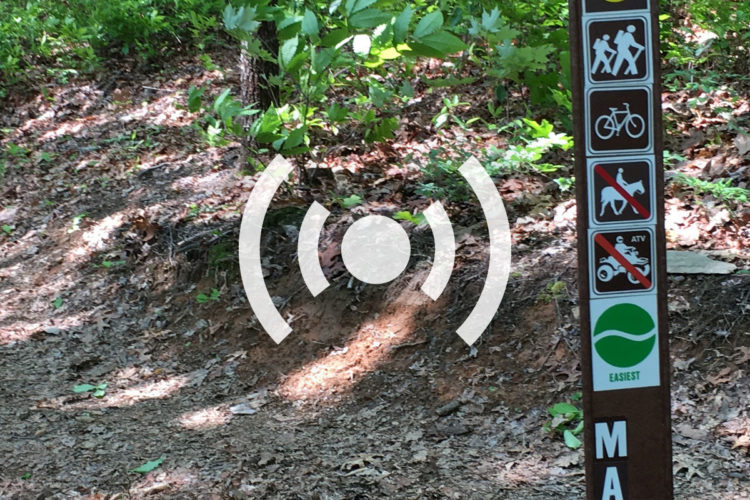

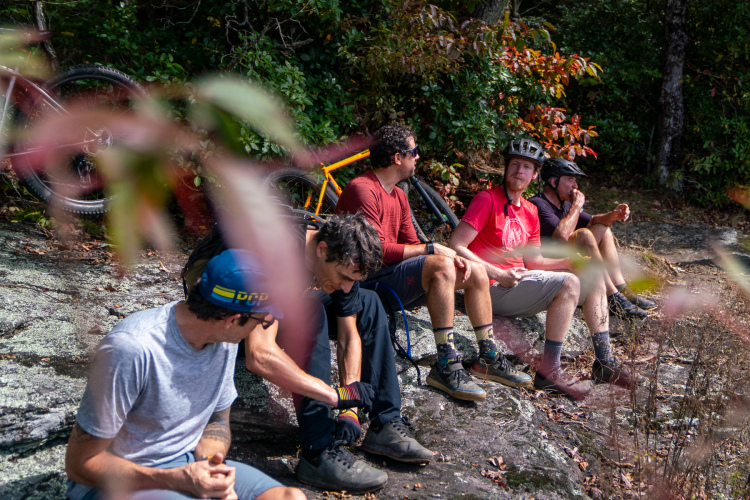
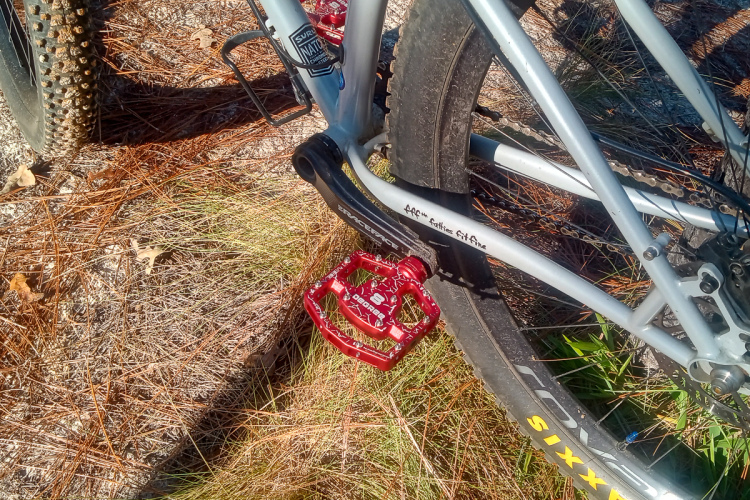
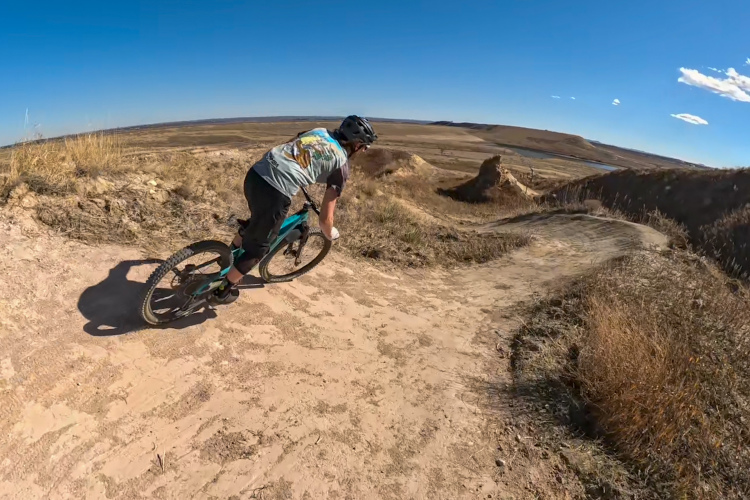
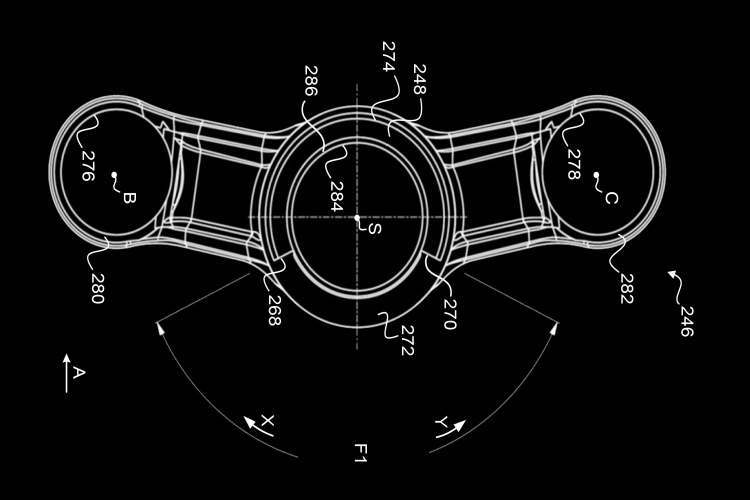

23 Comments
May 16, 2019
May 16, 2019
May 16, 2019
Avoiding crashes, and knowing where you like your personal safety limits are fantastic skills.
Knowing and accepting the fact that you will occasionally crash while learning new things, or while pushing the physical limits of traction and balance, can also be valuable skills -- both on the bike and in the rest of life.
May 15, 2019
May 15, 2019
May 15, 2019
Also, for crash avoidance, having confidence is key. Having someone tow you in to watch their line or walking a feature before you ride it can make you realize, "Hey, I can do this."
May 22, 2019
May 22, 2019
I hope you are recovering well.
Your are correct. Pads are useful but not in the trunk. We all do that a few times.
Equipment factors like tire pressure contribute to stability and balance challenges on the bike.
Learning good body position that allows for movement so you can be balanced and stable is key for riding harder trails.
I don't know any instructors in Texas. But Ninja has courses listed:
https://sandiegomountainbikeskills.com/texas/
(I am not affiliated with these guys)
I hope you feel better soon.
Have fun out there.
M
May 16, 2019
May 15, 2019
May 16, 2019
MTB is somewhere in between. As I get older and my ability to recover from a crash diminishes, I go more towards the line "avoid crashing". Learning is more about your muscles (and your mind) to memorize what is right, not to avoid what is wrong.
May 15, 2019
David, I hope you heal up soon and are able to enjoy some mid and late summer fun.
My last broken bone had me off the bike for about 8 weeks, and I developed a short-lived love of stair running to release some endorphins. It took nearly a year of cautious riding to regain confidence on the bike, and to truly push my limits again, but I am happy to say that it did eventually happen. I can scare myself again, which means I can start to improve some skills. For me, the broken bones and bike parts have been worth the thrill and progress I have experienced in return.
May 15, 2019
May 15, 2019
May 15, 2019
Tuck your chin and roll onto your shoulder, like this guy:
https://i.pinimg.com/originals/11/01/a7/1101a764fd18573b0fd760e1c609325d.jpg
You will get some road rash.
Do not try to "look where you are going," like this:
https://i.pinimg.com/originals/5d/1d/46/5d1d46a5953e46c8c1683b3c87b6ff36.jpg
You will hurt your neck and face.
Do not try to stop yourself with your hand, like this:
https://cdn-cyclingtips.pressidium.com/wp-content/uploads/2011/03/tymmsy-crash.jpg
You can break your collarbone or your wrist.
Sep 9, 2019
Your neck cannot handle the hyperextension that comes from landing chin/face first. TUCK AND ROLL. Don't sprawl and scorpion. Your arms cannot stop a face-first fall, they can only help you roll.
May 18, 2019
May 15, 2019
May 17, 2019
So I guess you must have crashed your car a few times while learning to drive?
(I’m hoping not.)
I don’t mind your ideas about mental preparedness and overcoming fear.
But the idea that you need to crash to improve is totally incorrect.
Imagine if downhill ski racers had to crash in order to get better and faster every season.
No, a DH ski crash is often a career ending injury. Strength training and heavy repetition are the formula for improvement in many sports.
As an instructor, I will tell you that if you are crashing, then you are not combining your skills properly for said feature you are crashing on. (I’m giving you the benefit of doubt here that you have the necessary skills and just need to practice to be able to apply them to your nemesis features. IMO most riders lack fundamental skills liked body position).
Riding beyond your ability and trying to survive is not a methodology for mtb improvement. If you manage to survive, how would you know what you did that made the difference? How will you repeat it if you don’t know what adjustments you made? Especially if they were not conscious or intentional?
You need a solid foundation of skills including body position, body movement and timing to be a better rider. You will not achieve this quickly simply by riding trails. To do maneuvers like drops, you need to practice on controlled (and safe) terrain which is typically smaller or less gnarly than your desired feature. Find a small drop, repeat the drop a fbunch of times until you are consistent, then make small changes in your position, timing, pressure (or whatever) and see what happens. Then you can decide how the changes will help you tackle bigger drops. Then find the next drop and see if you can take up a small notch with proper form and control.
You may crash when you’re biking. It’s not a sign that you are getting better, especially if you keep doing it. “Insanity” is doing the same thing over and over and expecting a different result.
I appreciate your sentiment that mental preparedness and control is part of becoming a better athlete. As a PMBIA instructor I believe that learning foundation skills and then more complex maneuvers helps with this preparedness because you will have more control on your bike. Control leads to performance; that might mean more speed, bigger drops, or just more fun.
Take it up a notch and find an instructor to help you analyze your abilities and suggest ways to improve. Then go rip that stuff without crashing.
M.
May 18, 2019
You make some great points here, and I totally agree with the wisdom of a slow progression. More people will read these insights if you leave out your initial analogy, which couldn't be further off target.
May 17, 2019
If you read my comment above you might see that we are in agreement on a majority of the points you shared.
As an aside, if I were learning to drive as an extreme sport, rather than simply to get from A to B, I would absolutely expect to crash and want to be comfortable with that inherent inevitability. I doubt that there is a professional race car driver or motorcycle rider, in any genre, who doesn't expect to crash occasionally when they are truly pushing the limits of their machine or muscle ability to a new level, regardless of how skilled they are.
May 15, 2019
May 15, 2019